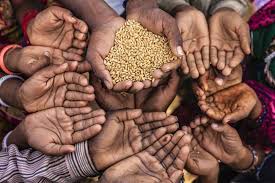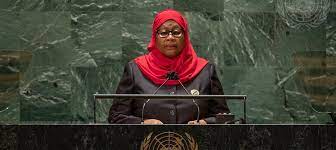
(C) Harleen Kaur Jaggi
By: Vitalio Angula
The recent prolonged nationwide lockdowns due to the Covid-19 pandemic had the unintended consequence of increasing food insecurity among vulnerable members of Namibian society.
Food insecurity is defined as the measure of the availability of food and an individual’s ability to access it. The 2020 Vulnerability Assessment and Analysis report compiled by the World Food Programme revealed that “over 428 000 people in Namibia now face high levels of food insecurity”.

These numbers are estimated to have risen due to the increase in unemployment among Namibians as the country underwent several lockdowns as a response measure to curb the further spread of the coronavirus.
As the world observes World Food Day on16 October 2021, it is necessary to take stock of the needs of the most vulnerable members of society who have been pushed further down the poverty line as a result of the pandemic.
The 2016 Global Hunger Index classified Namibia as having a serious hunger problem. To many, it does not make sense that Namibia, which enjoys the status of an upper-middle-income country, has a problem of hunger, undernourishment, and malnutrition.
The Porridge Storage is a group of self-funding young individuals who take it upon themselves every Saturday and Sunday to run a temporary soup kitchen in Windhoek’s informal settlement of Havana on the outskirts of the city.
This short-term targeted approach seeks to provide temporary relief to the many children in Windhoek’s informal settlements who go to bed on an empty stomach.
Tangi Shivute a volunteer with the group explained that the children who come to the soup kitchen range from two years to seventeen, “some are under-nourished and display signs of stunted growth as a result of not having access to a balanced diet”, Shivute confirmed.
Although these targeted approaches should be lauded, they are not sustainable in the long term.
The government should respond strategically if the United Nations Sustainable Development Goal 2 to end hunger, achieve food security and improved nutrition, and promote sustainable agriculture is to be realized in the next eight years.
The Food and Agricultural Organization (FAO) of the United Nations predicted that at least 40 percent of the poor in Africa would be concentrated in cities by the year 2020.
In Namibia, 52 percent of the population is said to reside in urban areas.
This offers an opportunity for municipalities to spearhead urban agricultural initiatives and projects for the more than 540 000 people who are said to reside in informal settlements in the periphery of cities and towns across the country.
Windhoek has 118 467 inhabitants living in informal settlements which are comprised of an estimated 25 428 households. This offers an opportunity for urban agriculture initiatives in the form of community gardens to be managed on a small scale to feed, barter, and trade.
A 2007 report by Krueger, Robert (Ph.D.), Looft, Fred (Ph.D.), Gold, Jane, and Steenkamp, Carol explored the viability of harvesting rainwater in the Windhoek informal settlement of Hakahana.
The qualifying report submitted to the Faculty of Worcester Polytechnic Institute in partial fulfillment of the requirements for the Degree of Bachelor Science, titled: Rainwater Harvesting in Informal Settlements of Windhoek, Namibia laid out a case for gutting as a method of harvesting water from the rooftops of houses and corrugated iron shacks in the informal settlement and storing it in water tanks.
Gutting is a viable form of water harvesting and can provide water for home and community gardens in informal settlements to address food insecurity in these areas.
“Urban agriculture reduces the poverty and food insecurity resulting from urbanization”, the FAO said.
Namibia is a net importer of food with 40% of its food requirements being imported into the country and while this means that food is available, the pricing of food makes it inaccessible to many of the citizens.
Undernourishment, which is described as not having or consuming proper or sufficient food to promote health or normal growth is a global problem.
Figures from the World Food Programme (WFP) reveal that 11% of the total global population is under-nourished. In Namibia, this number increases four-fold with information gathered by the WFP showing that 42.3% of the Namibian population being undernourished as a result of high rates of poverty that currently stands at 18%.
With an unemployment rate of 34% of the total workforce, one can easily see why having sufficient food of the right quality in the right quantities is a dream for many Namibians.
Poor nutrition causes the death of 45% of children under the age of five globally.
These are but some of the statistics that should move the government to respond to the threat of hunger in a country that is described as having upper-middle-income status.
Globally, the world produces enough food to feed everyone, however, not all of the world’s citizens have access to this food.
As we observe World Food Day on the 16 October 2021, under the theme, ‘Our actions, Our future!’ let us be reminded of the children who go to bed hungry on an empty stomach and let us all play our role in eradicating incidences of hunger and poverty across the world.
Vitalio Angula is a socio-political commentator and independent columnist
(This article was written using resources provided for by the World Food Programme Namibia)








